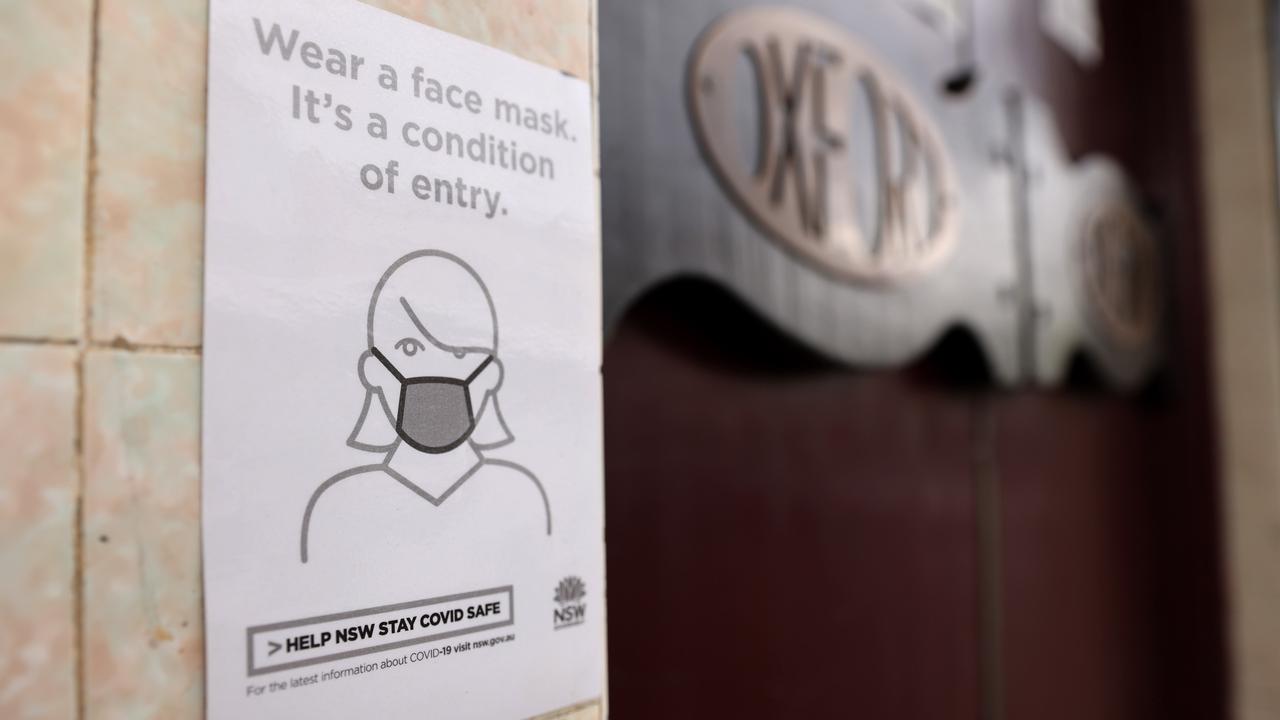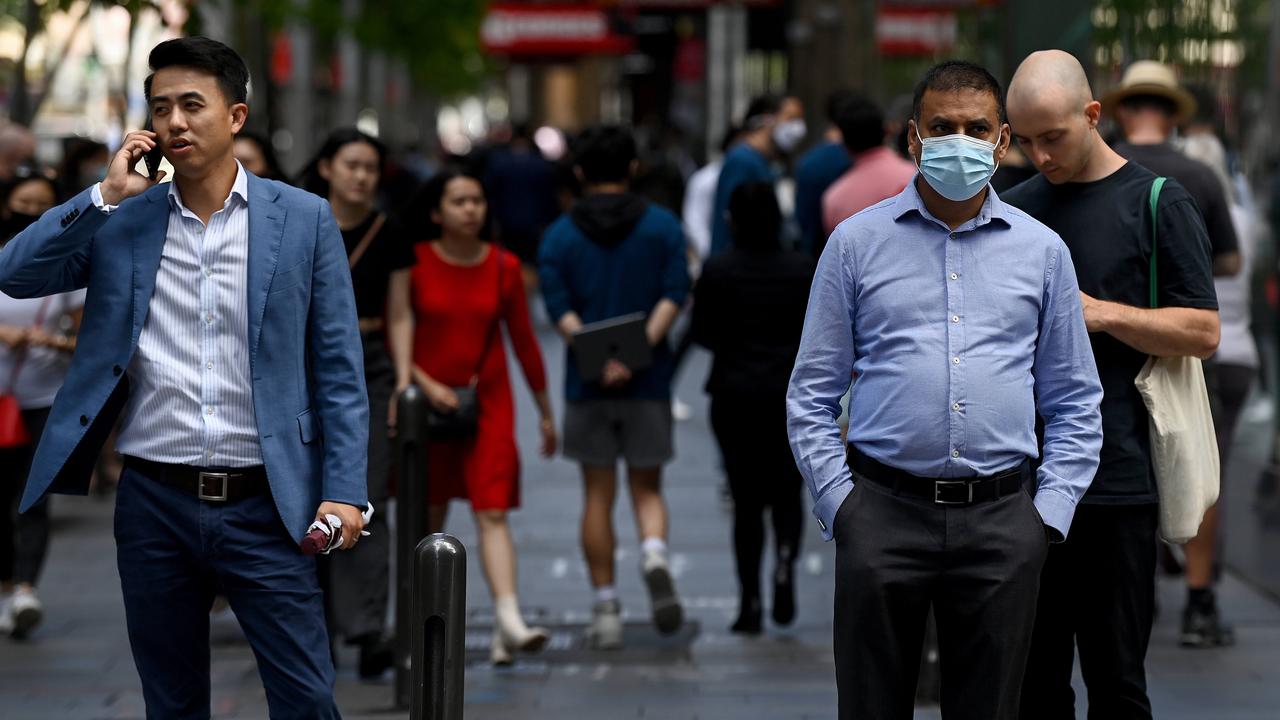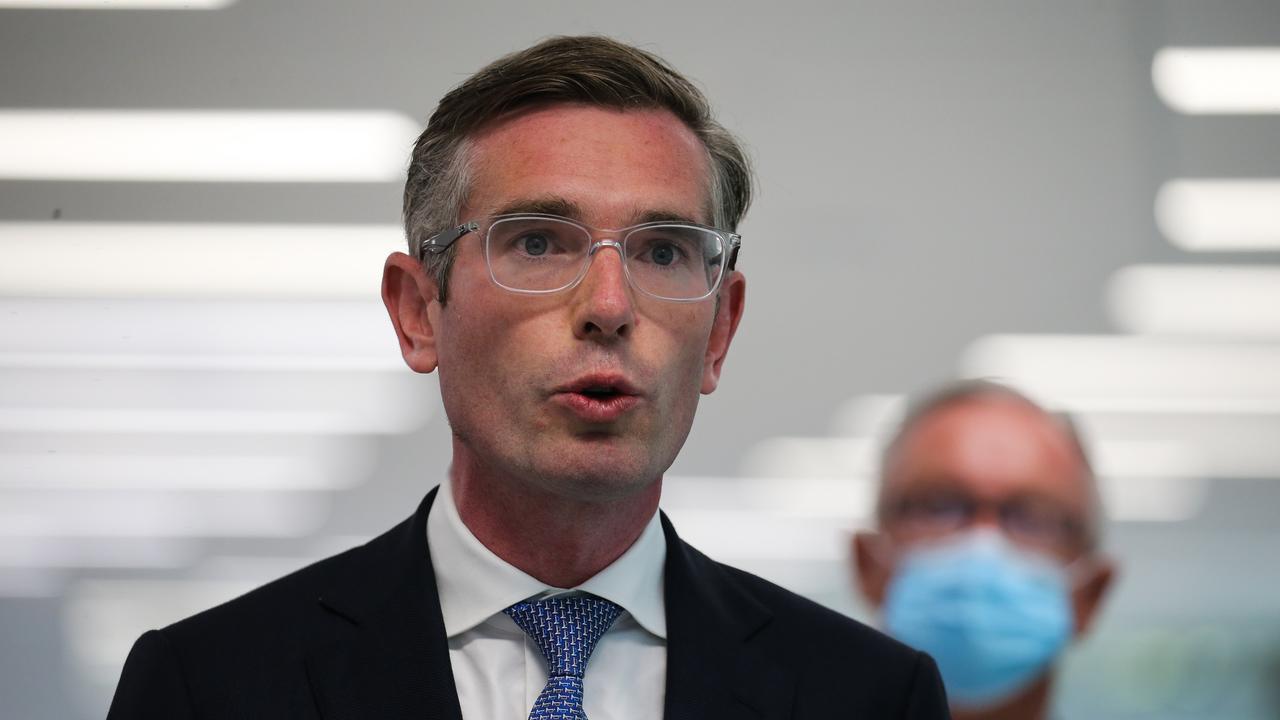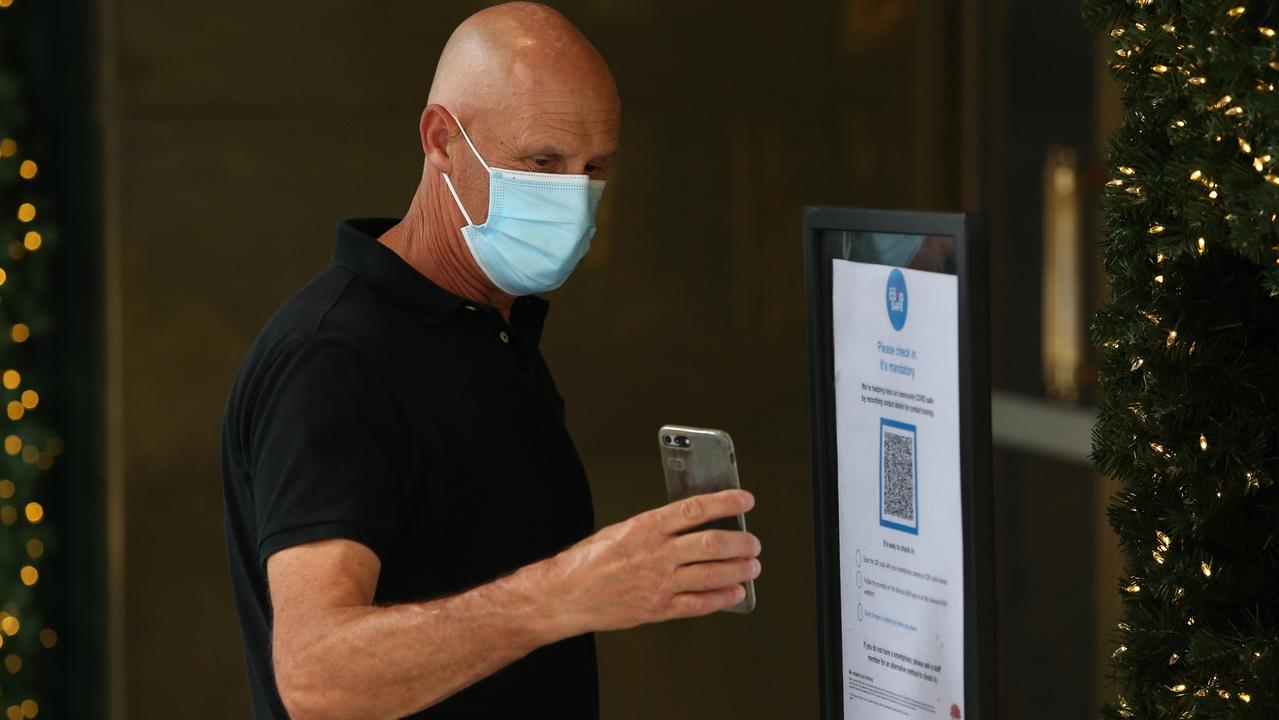All of the restrictions set to ease in NSW on March 1
As case numbers continue to drop, NSW residents can look forward to the end of the month – when the state will ditch its most “annoying” restriction.
As case numbers and hospitalisation rates continue their steady decline, NSW residents can look forward to the end of February – when the state will ditch, among others, its most “annoying” restriction.
From March 1, masks will no longer be required indoors – including in the office, and advice that people should work from home if they can will be lifted.
Changes to NSW’s QR code mandate, capacity limits and a ban on singing and dancing in hospitality venues or at major events could also be up for consideration, after the measures were extended until the end of February late last month.
Premier Dominic Perrottet told reporters on Sunday it is his government’s “civic duty” to bring workers back into the city, declaring it will benefit the community both “socially and economically”.
Mr Perrottet will convene a high-powered roundtable of government, business and community leaders this Friday to kickstart the Covid recovery of Sydney’s multiple CBD’s, including Parramatta. Attendees will be tasked with finding solutions to lift the city out of its virus slump, The Daily Telegraph reports.
Stream the latest news on COVID-19 with Flash. Stream more than 20 global & local news sources. New to Flash? Try 14 days free now>


“This summit will inject confidence that we are returning to a more normal way of living,” the Premier said, before suggesting there could be a government push for public servants to get back to the office when restrictions are eased from next month.
“Bringing back workers to the city is a civic duty from which we will all derive benefit, socially and economically.”
The government is considering discounted public transport fares into the city on certain days, more live music, and additional events to make the city a more attractive place to visit and work.
The Daily Telegraph reports that the popular Dine and Discover voucher program could also be retooled to ensure people use their discounts to actually eat at a restaurant, rather than order takeaway.
“The future of our city is our shared story and we want everyone to be involved in shaping that,” Mr Perrottet said.
“Our role is to back business, back people and bring our roaring city back to life.
“All over the world, people dream of coming to our Harbour City for work, pleasure and to live. We want to ensure that our CBD has the vibrant energy and strong economy to maintain our roles as a global city.”

While the extension of measures such as mask wearing and capacity limits “had a clear impact on transmission”, the continued use of QR code check-ins in NSW has come under fire from experts and commentators because authorities are no longer tracking or tracing new infections.
While Mr Perrottet insisted that “people feel confident checking in, and our job as a government is to instil confidence in our people”, 2GB radio host Ben Fordham said in late January the move “makes absolutely no sense”.
“This makes absolutely no sense. QR codes are here to stay. We’re not tracking and tracing anymore, so what’s the point?” a frustrated Fordham said.
“We’re not tracking or tracing so why are we still signing in with QR codes and why are we pushing ahead with useless QR codes?
“How does that make anyone feel confident? It’s like saying we’ve got a lifejacket for you but it doesn’t work.”

In a statement in late December, the Australian Health Protection Principal Committee (AHPPC), which advises on national cabinet, recommended “reviewing the utility” of QR codes at locations where people are unlikely to contract the virus.
“The AHPPC recommends maintaining QR code check-ins at higher risk exposure locations as this allows rapid identification of high-risk transmission events and venues,” it said.
The group recommended the codes remain in place at hospitals, aged care facilities and “settings where an outbreak would cause social and economic disruption”.
University of Sydney epidemiologist Alexandra Martiniuk told The Sydney Morning Herald that “we have to start thinking about Covid as a long-term thing”.
“We need things that are not burdensome,” Professor Martiniuk said.
“And QR codes are probably that.”






